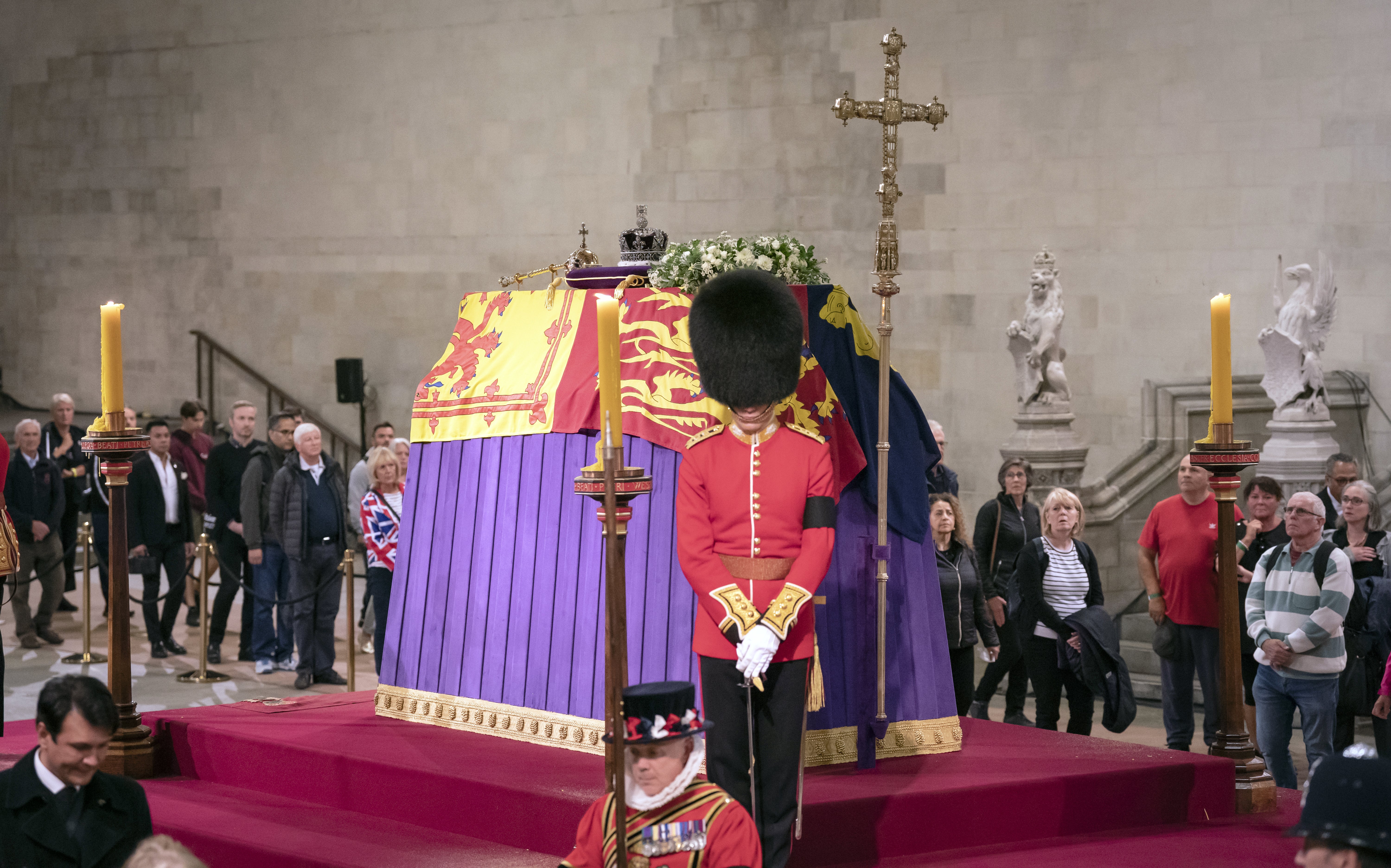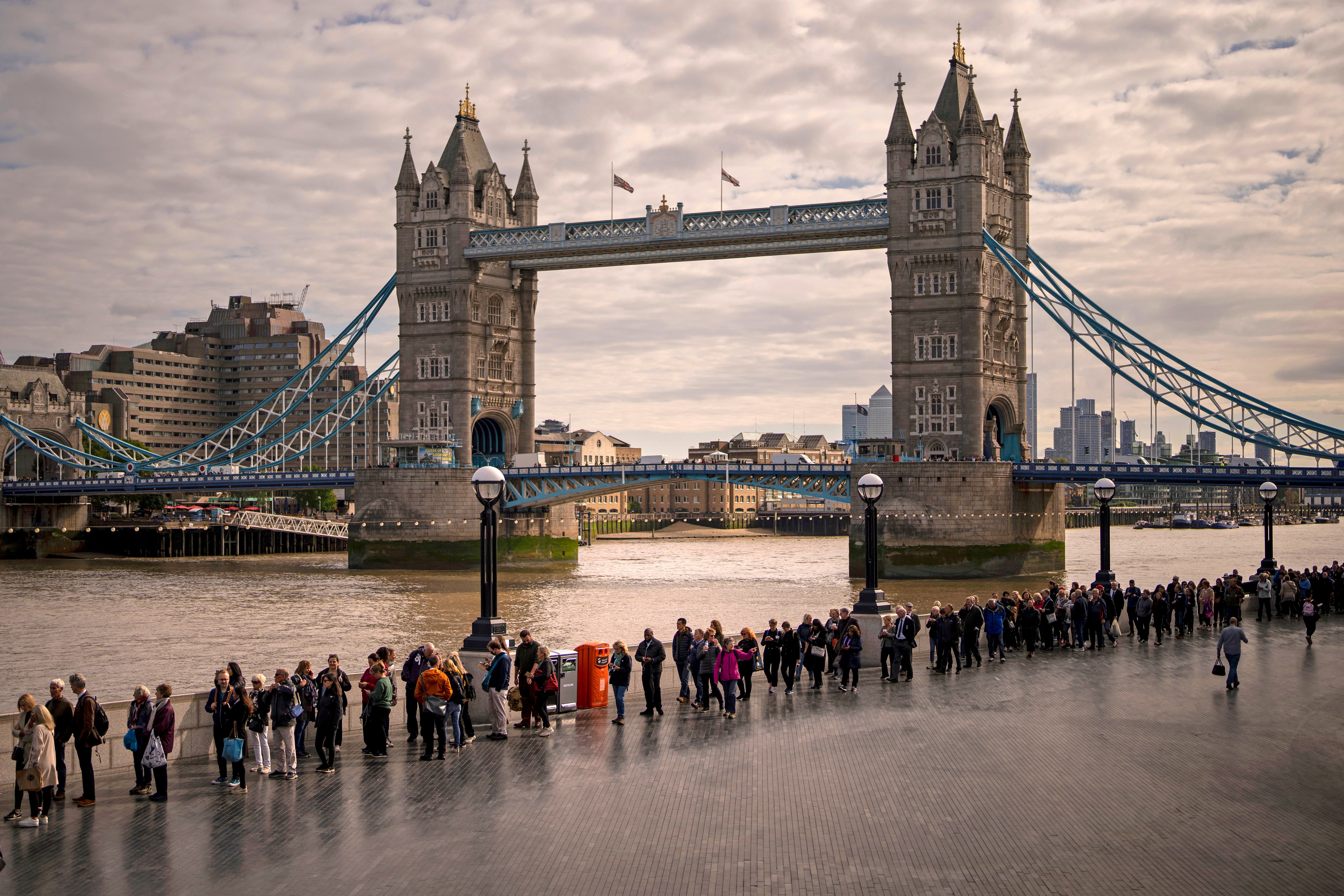Do we really need a 24-hour livestream of the Queen lying in state?
Round-the-clock coverage of the Queen’s lying-in-state has been described as ‘the most British thing ever’. But it’s in danger of turning the quiet dignity of this respectful ritual into a caricature, says Jessie Thompson


Your support helps us to tell the story
From reproductive rights to climate change to Big Tech, The Independent is on the ground when the story is developing. Whether it's investigating the financials of Elon Musk's pro-Trump PAC or producing our latest documentary, 'The A Word', which shines a light on the American women fighting for reproductive rights, we know how important it is to parse out the facts from the messaging.
At such a critical moment in US history, we need reporters on the ground. Your donation allows us to keep sending journalists to speak to both sides of the story.
The Independent is trusted by Americans across the entire political spectrum. And unlike many other quality news outlets, we choose not to lock Americans out of our reporting and analysis with paywalls. We believe quality journalism should be available to everyone, paid for by those who can afford it.
Your support makes all the difference.There has been plenty of exceptional broadcasting after the death of the Queen, a much-planned-for event that, somehow, still feels bigger than anyone could have anticipated. The presenters have been heroes – solemnly narrating a shot of a gate for hours on end is quite a skill – and being able to watch King Charles III’s proclamation ceremony, televised for the first time, was goosebump-worthy. But there’s always a moment when it all starts to get a bit silly, and that moment has now arrived with the surreal livestream of the Queen’s lying-in-state. Her coffin is in Westminster Hall before her funeral on Monday, so that the public can pay respects; for five days, it will be filmed 24 hours a day. Anyone can tune in as people file past – some in rucksacks and raincoats, some in their best black hats – watery-eyed, bowing their heads before moving on. As I write, nearly 15,000 people are watching it on the BBC’s website.
Joining the queue to see the Queen lying at rest is a major, physically gruelling commitment; the waiting time was 14 hours until it was closed on Friday for reaching capacity. In a practical sense, then, the livestream is there not just for the curious but those who can’t manage the long wait. Some have said how much they’re enjoying it, finding it calming and peaceful. And there have been major technological advances since Britain last had a new monarch, so why not? That urge to get it all on film is understandable – we’re all a bit awed by the sheer history-ness of it all. But the livestream feels a bit like taking pictures on your phone that you’ll never look at again, when you should have just been savouring what was happening right in front of you.
The relentless filming of the event has stripped it of its strange power, blunted its magisterial edges and turned it into something strangely voyeuristic. I find it immensely moving that each person, for their own specific reason, has taken the decision to be there. But, as the camera zooms in on people’s faces as they walk past, the tone is strangely intrusive. It becomes a quirky spectacle, rather than the profound moment of respect and grief that’s clearly present in the room. Everyone’s making the same joke: it’s like the retro Channel 4 Big Brother livestream. It’s weird to see mourning turned into reality TV.
That its gravity has been lost in translation is also causing a lot of people to declare how “very British” it all is. What’s becoming clear is that “very British” is actually a codeword for “eccentric”. The livestream seems to epitomise that. One person wrote on Twitter: “Saw there is a dedicated livestream for the Queen lying in state and I have to ask is Great Britain okay.” Another: “There is nothing more British than people queuing for 2.5miles to see the Queen, being able to track the queue online, then watching it on livestream.” Of course, it looks fundamentally absurd to watch people patiently wait for their turn to do a sad bow. But to be there, part of this strange but dignified ritual, clearly feels very different.
The performatively twee idea of Britishness is looming large throughout this period of mourning. “The queue” has overtaken Paddington Bear as our new national symbol of soft stoicism. Everything feels anachronistic and yet somehow exactly as it should be. The royal parks have had to ask people to stop leaving marmalade sandwiches; the Ladbrokes over the road from me has filled its windows with tributes to the Queen. But being here – in the room, as it were – I find that eccentricity is endearing, reassuring even. It’s when it’s severed from its real-life atmosphere that it looks overblown and caricature-like. And with that, there’s always a looming danger of a slide into snobbery. “How long until they become memes,” asked one person on Twitter. I feel a tenderness towards those who wanted to make that trip; by zooming in, we never feel far from a general sense of “why are you, a weird person, doing this weird thing?”

Besides, it’s obvious that the TV coverage will continue to be weird enough. You only have to turn on the TV to see the latest weird thing someone is saying or doing. I watched Sky News for five minutes this morning, and historian Anthony Seldon was, unrelatably, extolling the virtues of pilgrimages to Kay Burley. “We all need pilgrimages in our lives,” he declared. “As a former headteacher, doing things that are physically difficult is really important. To have the endurance of an all-night vigil. Deprivation. These things are important.”
Just before he spoke, we met eight-year-old Freddy from Salisbury, who had queued through the night with his family, wearing his Beavers uniform. Asked what it was like to finally see the Queen, he replied: “It was good… fun...” before the truth set in: “Exhausting. Um. Very… tiring.” The presenter, persevering, asked again. What was it like? “Um…. Sad?” Freddy said, stopping to think, before adding with a shrug: “Sad again.” I’m sure he’ll tell his grandkids about it, if he has them. But his bewilderment, almost affrontery, at being asked to discuss the experience and describe it on live TV seemed to sum it up. The livestream isn’t the most British thing – Freddy is.
Join our commenting forum
Join thought-provoking conversations, follow other Independent readers and see their replies
Comments